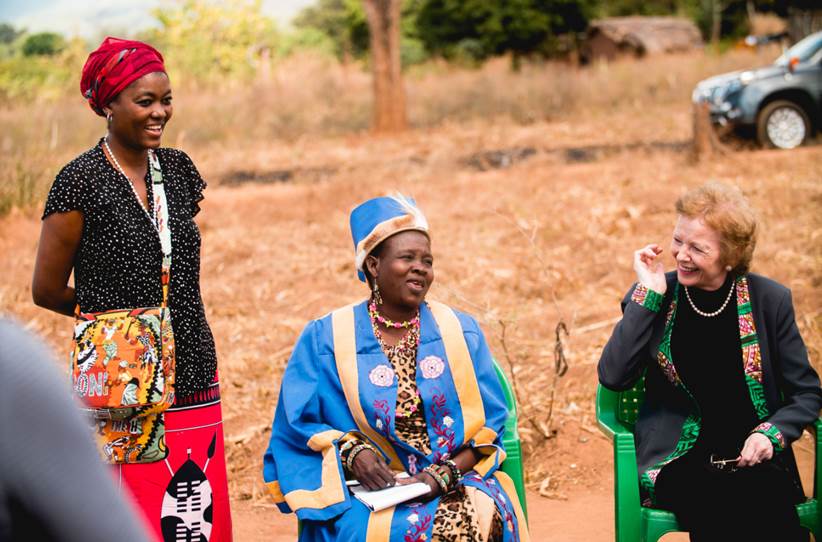Speaking at the 2018 Development Matters Lecture Series, which the IIEA is co-hosting with Irish Aid Mary Robinson discussed the struggle to secure global justice for those people most vulnerable to the impacts of climate change, stressing the importance of fairly allocating burdens associated with climate change and its resolution. “Climate change is a reminder of our interconnectedness, locally and globally. No country, be it Ireland, Malawi, Ecuador or the United States, can tackle climate change alone. Each countries’ actions matter and every country, whether its emissions are large or small, needs to be enabled to be part of the transition a zero carbon future” she said.
She outlined how the Paris Agreement has signalled a concrete commitment by countries to limit global temperature increase to 1.5°C noting “I have learned from climate scientists that to avoid the worst impacts climate change on humanity and on ecosystems, the global community must strive to reach the 1.5oC goal set in Paris. This is ambitious, it is incredibly challenging, the scale of transformation required surpasses anything humanity has done before – but it can be done and it has to be done. It will involve doing more of the things we now understand well, like afforestation and renewable energy, and it will mean developing new technologies for negative emissions – something we understand less well in terms of possible physical, socio-economic and ethical impacts. These are new areas of concern from a human rights perspective”.
She also reflected on how Agenda 2030 and the Sustainable Development Goals have renewed the international community’s commitment to ending poverty and increasing equality while protecting planetary resources and Ireland’s role in that saying “In my time as President of Ireland, and in the roles I have played since then, I have always been proud to visit Ireland’s development cooperation programmes around the world. They are programmes powered by compassion and empathy, driven by committed and talented staff and informed by an understanding of Ireland’s role in a changing world. The power we have lies in our ability to understand the needs of others and to use our influence to make a difference. That difference must be underpinned by a commitment to the Rule of Law, respect for the rights of every person, gender equality and social inclusion. These are the values that make us human and that make us Irish. It is no surprise to me that the approach is completely aligned with the principles of climate justice”.
Related Links
Download Mary Robinson’s speech
Our Work on Human Rights and Climate Change
Article on Rights Informed Climate Action published Nature Climate Change


